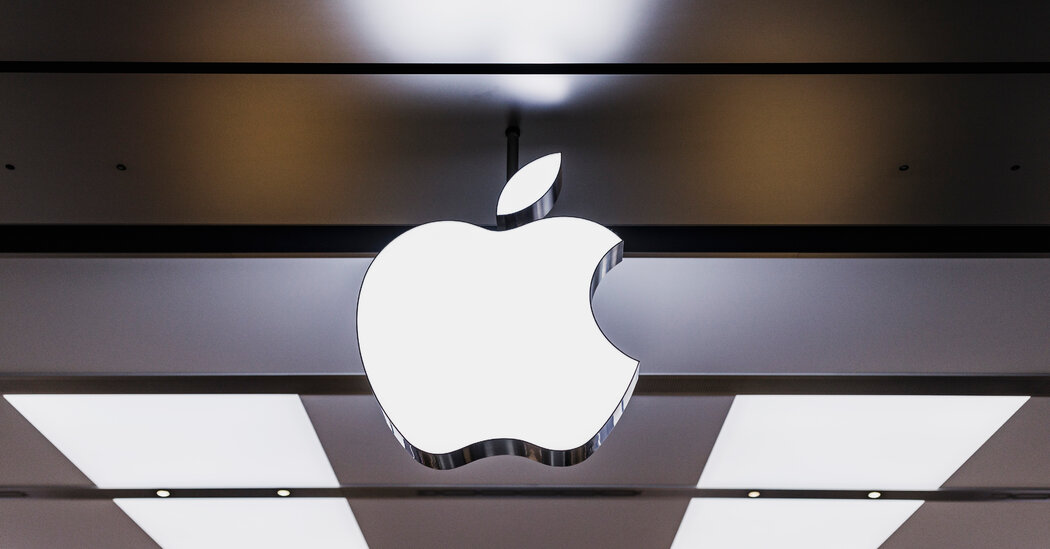Apple employees at a Baltimore area store voted to unionize, making it the first of the company’s more than 270 stores in the United States to join a trend in labor organization that is engulfing retailers, restaurants and tech companies.
The result, announced Saturday by the National Labor Relations Board, provides a foothold for a burgeoning movement among Apple retail workers seeking a greater voice over wages and Covid-19 policies. Employees at more than two dozen Apple stores have shown interest in unions in recent months, union leaders say.
In the election, 65 employees at Apple’s Towson, Maryland store voted in favor of being represented by the union known as the Apple Coalition of Organized Retail Employees, while 33 voted against. It will be part of the International Association of Machinists and Aerospace Workers, an industrial union representing more than 300,000 workers.
“I applaud the courage shown by CORE members at the Apple Store in Towson in achieving this historic victory,” said Robert Martinez Jr., president of IAM International, in a statement. “They made a huge sacrifice for thousands of Apple employees across the country who had all eyes on this election.”
Tyra Reeder, a tech specialist who has worked at the Towson store for just over six months, said she was “elated” with the result and hoped a union would help raise workers’ wages; stabilize the store’s schedule, which is under pressure from recent Covid-19 cases; and make it easier for employees to progress within the company.
“We love our job. We just want them to do better,” Ms Reeder said.
The result is a blow to Apple’s campaign to smooth out union action by arguing that it pays more than many retailers and offers a range of benefits, including healthcare and stock exchanges. Last month, it raised starting wages for retail workers from $20 to $22 an hour, and released a video of Deirdre O’Brien, who heads Apple Retail, warning employees that union membership could harm the business of could harm the company.
Apple declined to comment.
Workers in Towson said in a video ahead of the union vote that Apple’s anti-union campaign there was “dirty” and included management telling workers unions once banned black workers from joining their ranks. In the weeks leading up to the vote, Ms. O’Brien visited the store and thanked everyone for their hard work.
Shortly afterwards, employees said their managers began encouraging staff to voice their concerns in meetings and help them come up with solutions to their grievances. They also began attracting workers to one-on-one meetings where managers emphasized the cost of union dues, said Eric Brown, a Towson employee active in the union effort.
Earlier this month, workers at an Atlanta store abandoned a scheduled election as support for the union dwindled after Apple’s moves to raise wages and showcase the benefits it offered. Atlanta union organizers have filed a formal complaint with the National Labor Relations Board, accusing Apple of requiring employees to listen to anti-union messages during mandatory meetings. The board has not yet determined whether the charges are founded.
Ms. Reeder said workers in Atlanta had helped prepare union members at the Towson store to undo the company’s discussion points. “We kind of got an insight from the Atlanta store about things to come,” she said, referring to the company’s suggestions that employees could lose certain benefits in contract negotiation if they unionized.
“For that to happen, a majority of us have to agree,” Ms Reeder added. “I don’t think any of us would agree to lose something that we love very much that will benefit us.”
At Starbucks, one of the companies where organizers have gained the most momentum, employees credited a vote to organize at a store in Buffalo, urging other stores to run for union elections. Since that vote in December, more than 150 of the company’s approximately 9,000 owned stores in the US have voted to unionize, according to the NLRB.
Employees of stores that later unionized reached out to workers in Buffalo for advice on how to navigate the process.
“Workers gain interest and courage when workers prevail elsewhere,” said William Gould, a law professor at Stanford University and author of “For Labor to Build Upon: Wars, Depression and Pandemic.” “Many look to see: Can workers succeed? Will they work together? If the answer is affirmative, it will encourage other workers to take a step toward collective bargaining.”
Employees’ ability to land a contract may depend on whether the campaign spreads to other stores. Union supporters at Starbucks have said one of their biggest sources of influence over the company is the fact that they continue to win elections across the country.
Amazon workers who helped create a union in Staten Island in April also said they would benefit if more warehouses followed suit. The company is challenging the outcome of that vote to the labor council. With only one location in the US that has formally joined a union, the company can focus its resources on fighting the union there.
Apple employees also organize at the Grand Central Terminal store in New York and a store in Louisville, Ky. Those stores build support before asking for an election. Organizers in Atlanta have said they plan to revive their election in the future.

